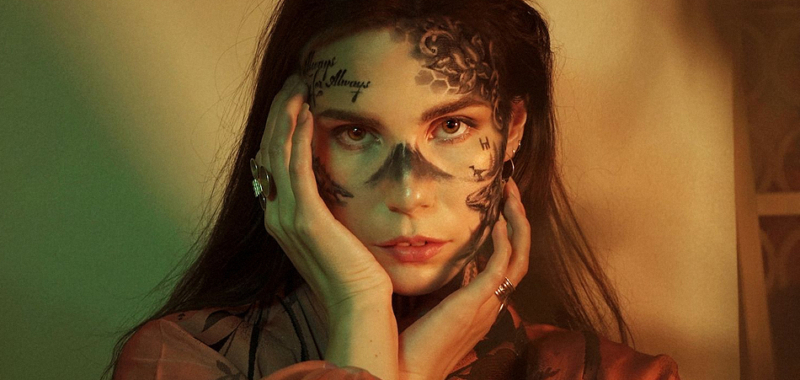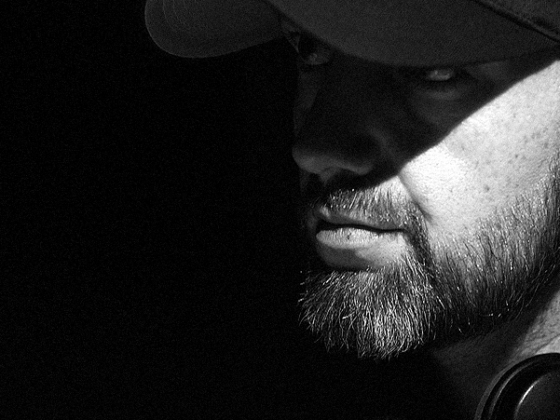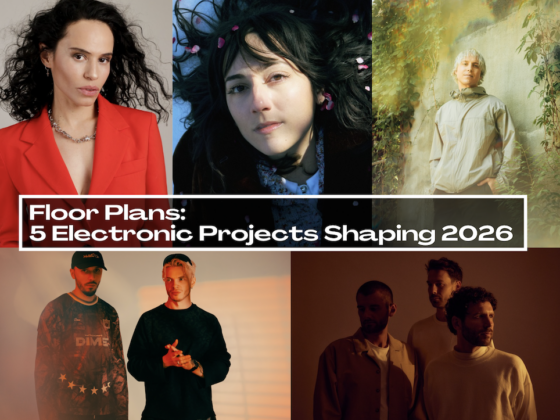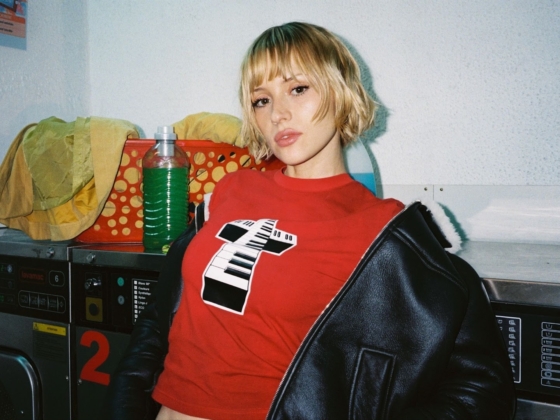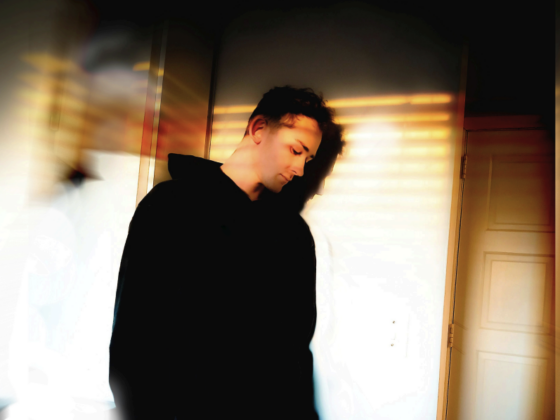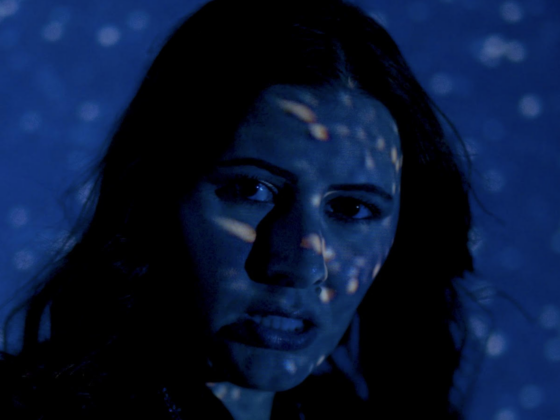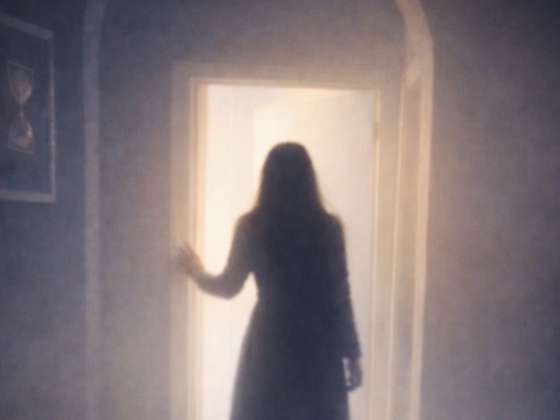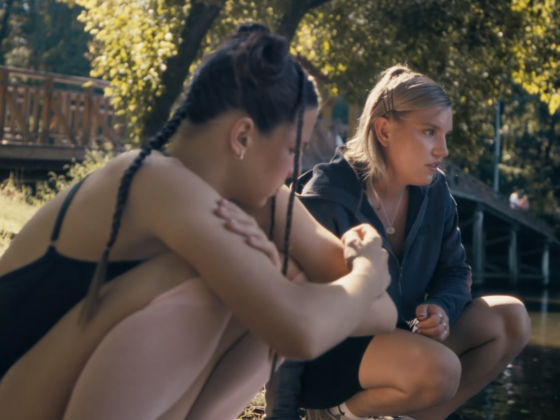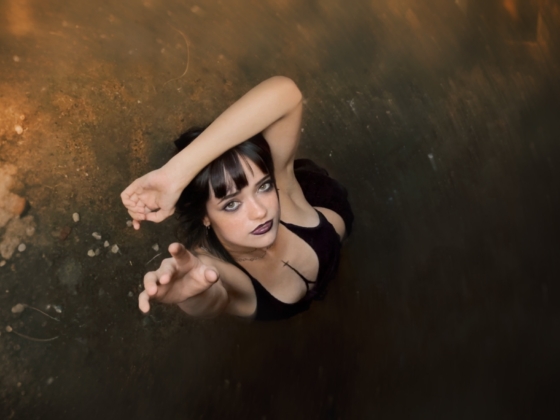Pauline Skott and I are discussing Instagram. You'd be forgiven for being intimidated by her, after a cursory scroll through the Swedish pop sensation's feed. It reveals a heavily tattooed face and a confrontational stare. In reality, Pauline – known as Skott – is gentle and measured. She's also very wary of the platform in question. "I was very analog," she laughs. "I got Instagram the day before I released 'Porcelain'. It never really appealed to me, but I had to learn all of that from scratch at the same time I was dropping my music."
'Porcelain' was Skott's debut release, the lead single off her first album Always Live For Always. It arrived into the world much like every other single, before rapidly taking on a life of its own. The moody, ethereal track was picked up by megawatt artists like Lorde and Katy Perry. Praised for its innovative production and Skott's rare vocal quality – at times like a bell tone and others a low growl – it firmly ejected the young musician from her humble beginnings and catapulted her into the ranks of her idols. "I didn't even know how to reply or if [Lorde and Katy Perry's] accounts were real," she giggles. But if there's any artist in recent memory who deserves her place among those musicians, it's Skott.
Admittedly shy, Skott was raised in a small, remote village in Sweden. She played the violin (of course), taught in the traditional way: you pick up a bow and sit beside a pro. "I think that whole culture has affected me in a way that I never learned any real technique," she says. "No sheet music or anything. I trained my ears, because you were only able to imitate and listen and join in. The young fiddlers get to play with the masters, it's a really nice environment. It's very playful and unpretentious. I try to carry that with me, to keep the creative process free."
It seems to be working. Skott speaks about music like it has a mind of its own – she's less the composer and more a member of the symphony audience, delighted at her discoveries. "It's almost like a little treasure hunt," she says. "You don't really know what you'll find, but when you do find it, it seems to have been there all along. We have all these songs floating around and they're just waiting to be found by a writer or artist."
Skott is kind of like a modern day version of the titular character in 'Midas', another astonishing track from her debut album. That is to say – everything she touches seems to turn to liquid gold. Not bothered by sticking to a particular genre, Skott marries pop hallmarks with electronica and pays homage to her favourite video games on her debut.
EARMILK: Are you the kind of person who needs to create by themselves? Or do you like collaboration?
SKOTT: Definitely both. I used to be a complete loner when it came to music, I didn't think I'd be able to write with other people. But now, I've been practicing and I've gotten addicted to working with friends. It's quite nice when it's social.
EM: How did being from a small town or village affect your songwriting?
S: I have to say, when I became a teenager and I moved to a town, I met people who had perfect technique and could read sheet music, and I felt kind of angry with my parents, because I never learned anything 'properly'. Now, after a few years, I'm not bitter about it anymore. I'm even thankful now, because I really trained my ears. In pop music, you don't use a lot of sheet music.
EM: Did you find when you began to branch out that there was pressure from your community to keep a stereotypically folk sound?
S: I mean, I went a completely different path after that folk music upbringing. When I went to school, I started getting into simple, small productions on free programs. I made blip music and got into video games, and that world of soundtrack. Even when I was 14, I was already taking a different path in terms of my musical interests. Where I come from, people don't really make a living off their music. It's more a hobby. So I made a choice to work with music, and then I think once you make that decision everybody understands that you have to go on a different path. I just feel like I keep bits and pieces with me, from all the music treasures I come across.
EM: I was never allowed to play video games as a child, so I'm just very intrigued by the hype. What's your favourite video game, why do you like it, and why were you initially drawn to it?
S: My all-time favourite is definitely Zelda. That's kind of where it started for me as well. It's where my mind got blown. We didn't have any video games in my family either, so it was when I first went to a school in town, I had friends there who showed me. Especially in these more adventurous games, you have all these world folk elements in the music and the soundtracks. So I would say pop music is probably more far off from our traditional folk music than many of the video game soundtracks are.
EM: That's funny, because listening to the album and looking at the visuals, there are a lot of references to mythology. Was that a conscious decision to incorporate that into the album?
S: I think it was unconscious. I started out being a bit shy for the camera, and I didn't necessarily want to put my face on the cover. So I was trying to picture the music, but also find what really intrigues me. It started out being like, "what awakens the child within me?" And that's basically dragons, swords and dinosaurs – all these mysterious creatures and worlds. And now, as soon as I start a song I start seeing the cover too.
EM: And I want to talk about your transition into pop music. There was a lot of narrative around labelling you an overnight success and a one-hit wonder. What was your reaction to that?
S: I wasn't really prepared for the other things you have to do as an artist. I completely knew my sound, my songs, all the creative stuff. But when it came to things like being a public figure. Music is my way of communicating. So it was kind of hard to have to communicate with words. Social media was the biggest thing that I wasn't prepared for. I had never had the stuff my friends had, and all of a sudden there was some kind of pressure to be more than just a creature locked a way in a studio. It is a lot of pressure. It's definitely been the main challenge since I started, to learn and keep up with all of that. And also to keep it healthy and creative and inspiring. Because sometimes it can just be draining.
EM: Do you have any things that you do to not feel like you're over-engaging? Or to make yourself feel safe and supported in that environment?
SK: I don't know if I have any specific tricks, but I had to find a way for me to enjoy Instagram. Because I've never felt it's very natural for me to take a picture of something. I also don't love being in front of the camera. I wanted to create a theme around every song. I think about what colours can go with the song and what theme corresponds to it, because then it's about the song, and that makes it feel like it's relevant to me and then I get inspired.
EM: It also probably gives people who do follow and want to engage with you a deeper insight into the material they've been given.
S: Exactly, I think you just have to find a way that works for you.
EM: You talk about music like it has a mind of its own…
S: I feel like that, it's almost like a little treasure hunt. You don't really know what you'll find, but when you do find it, it seems to have been there all along. We have all these songs floating around and they're just waiting to be found by a writer or artist.

